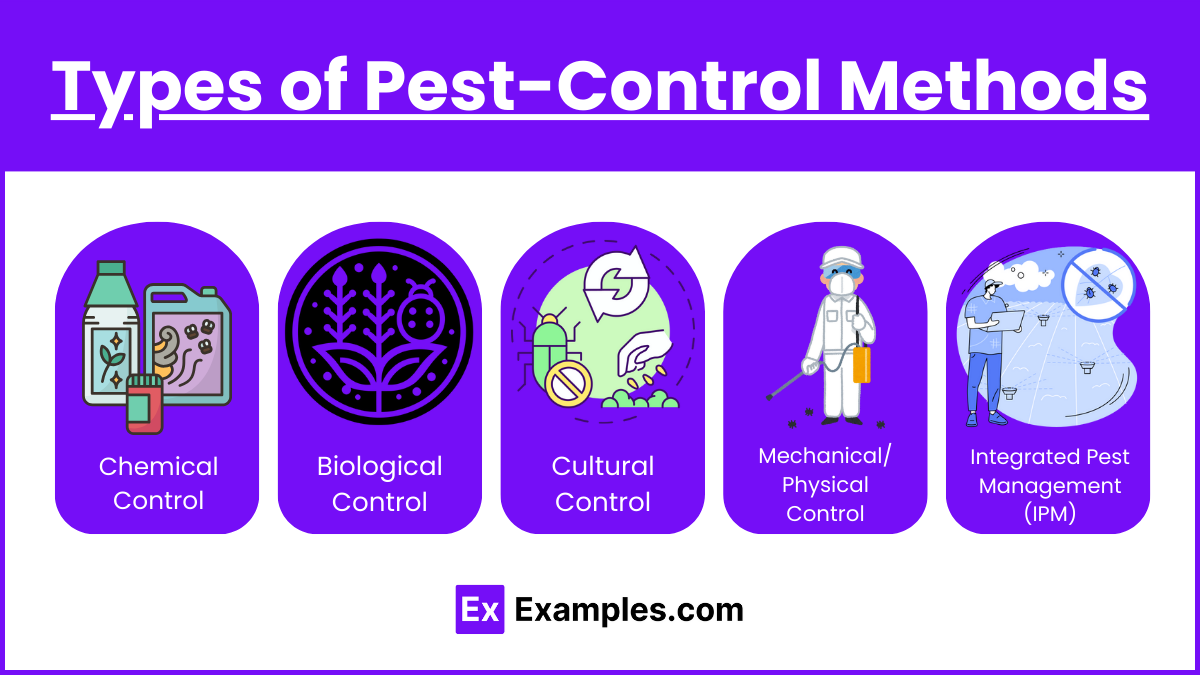The Of Pest Control
The Of Pest Control
Blog Article
What Does Pest Control Mean?
Table of ContentsNot known Facts About Pest ControlUnknown Facts About Pest ControlThe Ultimate Guide To Pest ControlNot known Facts About Pest ControlTop Guidelines Of Pest Control
Limitations of Chemical Management Be able to analyze pest troubles, identify if monitoring is required, and make ideal recommendations using IPM methods. Recognize with various approaches of pest management - their advantages and limitations. Understand the worth of valuable pests. It is not possibleor even desirableto rid gardens of all pests.This chapter talks about (IPM), an approach that utilizes understanding concerning bugs and their, practices, nonchemical techniques, and chemicals to take care of bug issues. Extra information about IPM for particular plants is consisted of in chapters that concentrate on those plants. Nonchemical parasite control actions are stressed in phase 17, "Organic Horticulture." Taking care of birds and animals is covered in chapter 20, "Wildlife." Handling in the yard and garden is covered in phase 6, "Weeds." Bugs in a yard or landscape may include pests and mites, weeds,, mammals, and birds.
Lots of people hurry to pull, hoe, or spray every weed they see. Bugs and weeds, nevertheless, play a duty in the. After growing a yard or developing a lawn, the all-natural procedure of plant sequence starts to improve and nonnative plants. A weed expanding in a grass stands for the initial phase in a series of occasions that, if permitted to proceed, can at some point cause a woodland.
What we call "parasites" are component of an all-natural system at work. Only human beings consider certain varieties bugs when they happen where they are not wanted.
Pest Control for Beginners
Bugs at risk to a pesticide were quickly eliminated, leaving resistant ones to breed and increase. It ended up being clear that chemicals alone would not address all insect troubles. Instead, overuse of chemicals caused the growth of resistant bugs. Scientists began to develop a new approach to pest control. This new strategy was called incorporated insect monitoring (IPM).
An IPM strategy allows some level of bugs in the setting. Pests are much less most likely to endure a program that uses various approaches of decreasing their populaces. Integrated parasite monitoring was first suggested by entomologists since pests were the first team of pests to show hard to manage with chemicals alone.
A threshold is the point at which activity need to be taken. IPM has prolonged past pests to administration of all pest populations: weeds, disease organisms, and mammals.
The Main Principles Of Pest Control
Management as opposed to obliteration of bugs is the goal. An IPM strategy begins with a careful evaluation of each bug invasion. Only after that can one choose about the ideal techniques required to subdue insect activities. The life process of the insect, feasible damage, all-natural opponents, and effects of climate, among various other aspects, are taken into consideration prior to a control plan is implemented - Pest Control.
Clover expanding in a grass may be considered as an undesirable weed, yet as a vegetable it is manufacturing nitrogen for the soil and the blossoms are giving nectar to honey and other. Resistance for some weeds might be component of an IPM strategy. may be eating the fallen leaves of a plant, but when they are recognized as the larvae of Eastern go to the website tiger swallowtail butterflies, their damage may be endured so we can enjoy the lovely butterfly.

The 2nd most essential tool in insect administration is very early treatment. Reacting to problems swiftly, prior to they have time to multiply, requires a less significant intervention.
6 Simple Techniques For Pest Control
Lots of secure, practical, nonchemical approaches of plant defense and bug management might reduce or get rid of the requirement to spray. Other techniques are most valuable when made use of with chemicals. To carry out administration methods properly and to reduce losses, gardeners ought to understand the sorts of pests that attack plants and recognize pest biology.

Performing a soil examination and using only the suggested quantity of fertilizer and lime makes best use of the benefit to the plant while decreasing problems associated with too much use fertilizer - Pest Control. Covering the soil with a number of inches of compost protects the plant in several methods: lowering dirt water loss to evaporation, lessening weed competitors, providing nutrients, and producing an ideal atmosphere for earthworms and bacteria that maintain the dirt loose for roots and damage down natural material to release nutrients
If mulch touches the trunk, it can create a method for voles, germs, and fungi to assault the plant. Do not utilize manure or garden compost linked here that has actually not extensively decayed as a top clothing due to the fact that it can encourage undesirable insects. Research study recommends that farming is damaging to soil click reference framework.
The Basic Principles Of Pest Control
If tilling is considered required, take into consideration doing it in the autumn when the life cycles of many bugs brings them near the surface. At the surface area, insects come to be subjected to the climate as well as birds and various other natural opponents.
Report this page